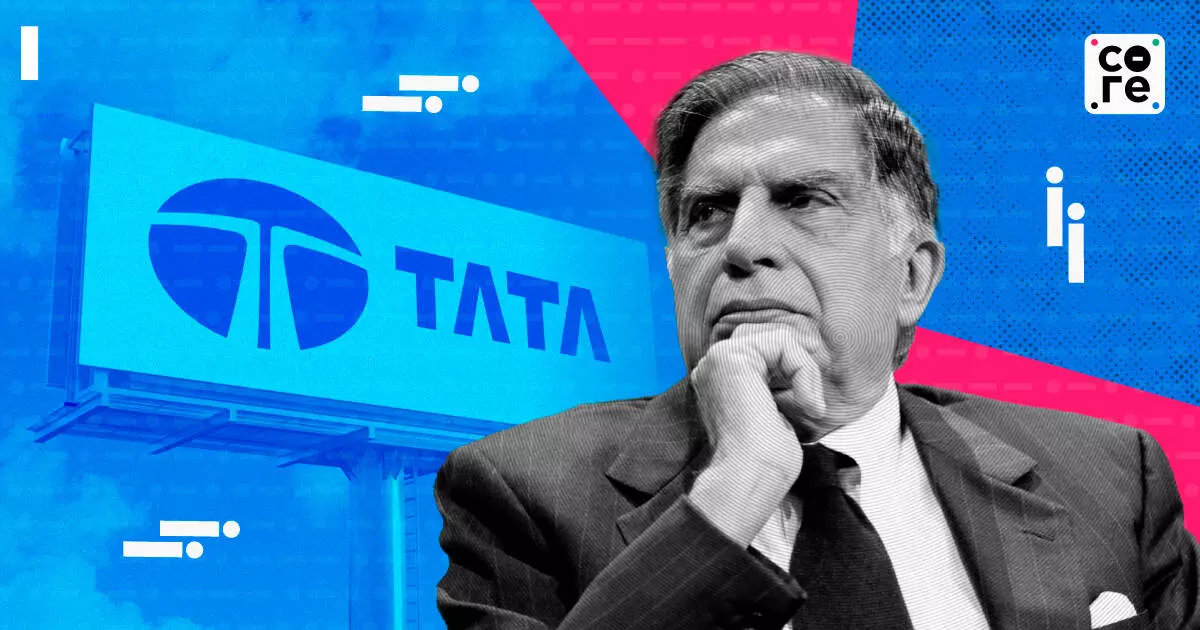
Ratan Tata, An Entrepreneur Who Shaped Companies And A Nation
Drawing inspiration from Ratan Tata's entrepreneurial vision and his relentless drive to tackle greater challenges.

In 1999, Tata Motors was on the verge of selling its passenger car division to Ford Motors after the Tata Indica launch faltered a year earlier. The discussions at Ford’s Detroit headquarters in the US didn’t go well. According to one account, Tata Motors officials including Ratan Tata were insulted by disparaging comments about the company and the car project. Ratan Tata returned to India from the meeting more determined to see the project through. Roughly eight years later, Tata Motors bought Jaguar Land Rover from Ford.
Tata Indica’s launch was marred by problems ranging from the engine to high noise and vibration levels in the car. In some cases, customers even turned violent. The sales for the diesel car dropped and in 2000-01 Tata Motors announced a Rs 500 crore loss. The company had already invested Rs 1,700 crore in the project. The blame landed on Ratan Tata for thinking too big.
Ratan Tata called an emergency meeting at the Taj President in Mumbai’s Cuffe Parade to take stock. Team members were encouraged to speak freely and accounts from the meeting suggest there was more self-criticism than blame. This resulted in the launch of a massive retrofit for around 45,000 cars with 45 parts being repaired free of cost. Tata Motors held customer meetings and collected feedback.
A new car was already being worked on at the time. The Tata Indica V2 was launched with some design changes in 2001 and went on to do what the o...
In 1999, Tata Motors was on the verge of selling its passenger car division to Ford Motors after the Tata Indica launch faltered a year earlier. The discussions at Ford’s Detroit headquarters in the US didn’t go well. According to one account, Tata Motors officials including Ratan Tata were insulted by disparaging comments about the company and the car project. Ratan Tata returned to India from the meeting more determined to see the project through. Roughly eight years later, Tata Motors bought Jaguar Land Rover from Ford.
Tata Indica’s launch was marred by problems ranging from the engine to high noise and vibration levels in the car. In some cases, customers even turned violent. The sales for the diesel car dropped and in 2000-01 Tata Motors announced a Rs 500 crore loss. The company had already invested Rs 1,700 crore in the project. The blame landed on Ratan Tata for thinking too big.
Ratan Tata called an emergency meeting at the Taj President in Mumbai’s Cuffe Parade to take stock. Team members were encouraged to speak freely and accounts from the meeting suggest there was more self-criticism than blame. This resulted in the launch of a massive retrofit for around 45,000 cars with 45 parts being repaired free of cost. Tata Motors held customer meetings and collected feedback.
A new car was already being worked on at the time. The Tata Indica V2 was launched with some design changes in 2001 and went on to do what the original car was supposed to. Ratan Tata would return with the famous Rs 1 lakh car, the Nano, in 2009 which again ran into problems — both internal and external. These were serious because the project was eventually wound down.
Many aspects of Ratan Tata’s personality were in the above instances For one his audacious goals, which stretched way beyond what most entrepreneurs would even dare attempt. Remember, product entrepreneurs are rare in India. It takes gumption and courage to attempt a product that has to prove itself day after day on the kind of roads we have in India.
Second, if something does not work, entrepreneurs must trust the teams that built the product to find the solutions. That takes patience when time is running out in the marketplace. Finally, when Ratan Tata may have got credit for the group’s many successes during his tenure, he never really sought the limelight. His colleagues, whether in automotive, software, hotels or steel, felt a sense of constant ownership. This lasted even after his retirement.
Tata of course set a trailblazing path with the global acquisitions of brands like Jaguar Land Rover, Corus, Daewoo and Tetley. That was another aspect of the vastness of his vision, to grow and succeed. All of this stemmed from his desire to take on bigger challenges.
All Tata employees and acquaintances speak of Ratan Tata’s humility. They say he was always aligned with Tata Group’s principles of serving society along with creating value for shareholders. His tenure ticked all the boxes and created new benchmarks. In today’s time of confusing definitions of entrepreneurship and success, his life and career offer important insights into the true nature and role of entrepreneurship, of the kind that shapes companies and nations.
Drawing inspiration from Ratan Tata's entrepreneurial vision and his relentless drive to tackle greater challenges.

